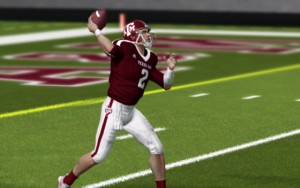Almost everyone knows about Luigi Mangione and the murder of Brian Thompson but most of you are probably unaware of what is happening with Counter Strike Global Offensive. Much like the murder of Thompson, there are no good guys in this story but the news of both gives us an insight into some of the problems facing the world right now.
Counter Strike Global Offensive, technically Counter Strike 2 now but most call it CS:GO, is a gambling website and computer game. Many people who play the game simply do so to gamble and this includes a lot of young people. There is tremendous damage being done and people are angry.
Counter Strike Global Offensive and Skins
Valve, the developer of Counter Strike Global Offensive, introduced skins to the game back in 2013. These skins are cosmetic items applied to weapons. No big deal so far. These skins are popular and Valve runs a cash store where people can sell their skins to other players for money. Valve takes a percentage of this money, estimated at over a billion dollars in 2023. That’s Valve’s cut, not the entire value of the sales. Just their cut of it.
How do people get skins? They get them by playing or buying in-game weapon cases for $2.49. The items in the weapon case are randomly generated, with most of them being of low or no value. The rare skins sell for many thousands of dollars. This created an industry where influencers purchase these weapon cases live on their streams and, when they get high value items, respond with over-the-top excitement.
These influences draw in young people who want to win. They, in turn, spend enormous amounts of money on the weapon cases, hoping for financial return. It’s, for all intensive purposes, gambling. Many young people suffer enormous negative outcomes from this gambling. They use their parents’ money and cause financial hardships.
It’s bad.
Personal Responsibility with Counterstrike Global Offensive
Don’t get me wrong. I do think people who purchase these weapon cases are largely to blame for their own financial suffering. No one forced them to buy the cases. That being said, there is a lot of rage out there against the influencers who promote this destructive gambling. The same rage we see from people who are delayed, deposed, and denied in the healthcare industry.
Think if your child destroyed the family finances and their own future because they emulated an influencer who was pretending to gamble.
No Legal Recourse
Fueling the rage is the lack of legal recourse, both in Counter Strike Global Offensive and the Healthcare industry. People suffer, for years, horribly, and the courts ignore them, finding for the side who can pay for better lawyers.
The Palpable Rage
The rage is enormous. People who suffered want someone to pay, in the same way Mangione wanted Thompson to pay. Coffeezilla just released the first installment of his take on this and it’s a fascinating watch.
People are organized, they harass, they threaten, they incite. They think they are doing the right thing; they are certain our courts have abandoned them, that they, the little guy, has been sold out. They might be right.
Big money is winning and we the people are losing. Rural, urban, right-wing, left-wing, Christian, Atheist, young, old, sick. Liberté, égalité, fraternité doesn’t always end politely.
Tom Liberman

